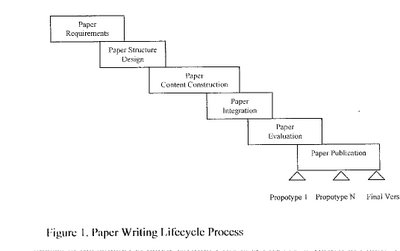When does an Engineer become a good communicator?
I usually tell students in first year that surveys of employers continue to show that what they are looking for is not so much technical knowledge, but the ability to communicate well, and other non-technical qualities. of course this doesn't mean that you will get a job as a engineer if you don't know any engineering, but it does make the point that just knowing lots of technical stuff is not enough.
Nowadays, so much of engineering is about talking to clients, working with users to understand a need, generating solutions to problems, informing decision makers of the outcomes, writing reports and so on, that communication cannot be ignored. Sure, you'll still do lots of technical stuff. However if you can't communicate that to others, your value to an organisation is limited. Put it another way - you won't find too many engineering jobs that only require you to sit in a room by yourself designing and building things.
In my field, systems engineering, the importance of communication is particularly high. Step one in creating a complex system, for example an Air Warfare Destroyer, is talking to the customer. There is a real skill in translating the needs of a customer into a clear, unambiguous set of technical requirements that engineers can use to build a system. There's plenty of engineering in there, but unless you can walk into a room and communicate, really communicate, with customers, the process will never get off the ground.
So communication is a vital engineering skill. But how do you develop those skills? Personally, there is no short cut for getting practice. Take every opportunity you can to speak publicly, make presentations and get used to standing up in front of a group of people and talking confidently. Also, don't ignore written communication. I don't want to sound like an old fogey, but SMS-style abbreviations, poor spelling, poor grammar, and so forth just aren't good enough. Your written communication may form part of the legally agreed deliverables for a contract, so it needs to be good. Therefore you might as well practice now. Make sure that your assignments are checked for spelling and grammar. Buy a dictionary and a grammar guide (the printed kinds) and learn to use them. People will never fail to be impressed by someone who can write clearly, concisely and accurately.
I also mentioned 'personal qualities'. Public speaking, for example, requires more than just practice. You need to be confident, for example. This comes with practice and preparation, but also is aided by personal confidence. You might wonder how you develop some of the personal qualities. Some people think you are born with them. I disagree, and again, it is a matter of looking for chances to develop them. Being thoroughly familiar with your subject matter is also a good start. There's nothing like knowing a topic inside out to help your confidence.
So, what can I say to summarise. If you want to be a good communicator then treat it seriously. Practise it, develop your skills and take opportunities to develop your personal qualities whenever you can. Be the first to volunteer, take leadership positions, talk to people, practice listening effectively, and know your subject.
Good luck!
Associate Professor
David Cropley
Director: Systems Engineering and Evaluation Centre












